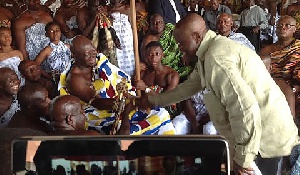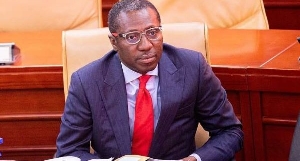 Most people in forest growing areas indiscriminately cut down trees for crop production,
Most people in forest growing areas indiscriminately cut down trees for crop production,
Daniel Kofi Abu, the Project Coordinator of Tropenbos International Ghana, a non-governmental forestry organization, has identified deforestation and bush burning as major causes of forest depletion in the country.
He said most people in forest growing areas indiscriminately cut down trees for crop production, whereas others engage in bush burning which depletes the forest reserves.
Mr Abu said this at an event to climax the four-year project on “Strengthening the capacity of non-state actors to improve the Forest Law Enforcement, Governance, and Trade-Voluntary Partnership Agreement VPA and Reducing Emissions from Deforestation and Forest Degradation Reducing Emissions from Deforestation processes in Western Africa”.
The project, which began in January 2017 seeks to strengthen the capacities of non-state actors in the Forest Law Enforcement, Governance, and Trade module to preserve the forest reserve of the country across 50 communities in the Bono and Western North regions.
The project adopted a monitory strategy, where some members of the community were engaged as monitors and verifiers, who in turn report on illegal activities in the forest reserves to the team.
He said they had trained 270 community monitors and verifiers who went around forests to identify illegal activities such as illegal logging and deforestation.
He said, “ The monitors and other stakeholders at the community level including traditional leaders and other community-based organisations were advancing change in the communities.”
“So far, we had over 700 alerts from our monitors through, which the team was able to clamp down these illegalities and arresting over 100 offenders,” he said.
He said the project had yielded positive outcomes including improved forest governance and monitoring, as well as improved the sector’s management.
Nana Kwasi Bennie II, Chief Adwumamu in the Sefwi-Wiaso traditional area, said the project had enlightened community members to protect their forest reserves and eschew acts that led to degradation.
He called on the organizers to continue to engage them even after the project had elapsed, adding that, “ we wish you would continue to engage us and organize another four-year project like this.”
Professor Kyere Boateng, Chairman of the Project Advisory Committee, said the findings of the project would be shared with policymakers and other stakeholders.
He said the findings were incorporated into the European Union Green Deal Agenda in Ghana, an agenda to restore natural resources such as forests in the wake of climate change.
Community monitors and verifiers from the Western North Region were presented with citations for their monitoring efforts.












